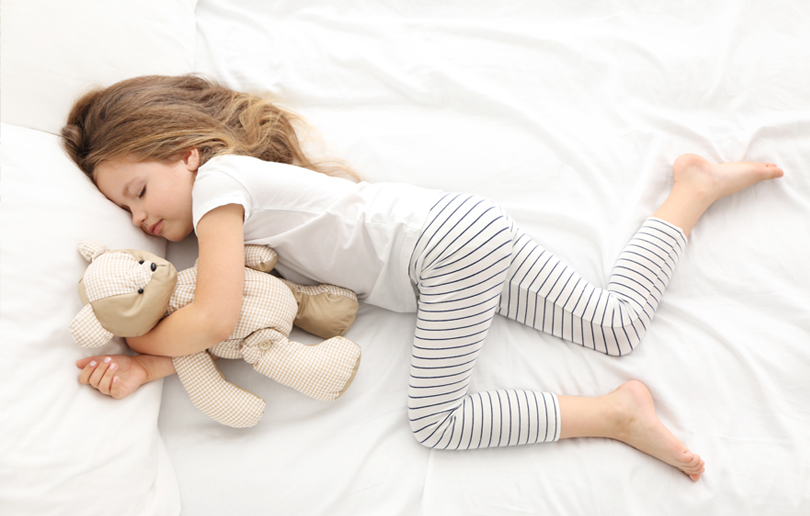Everything You Need to Know About Your Child’s Disrupted Sleep Cycle

Sleep is the most relaxing and important part of our everyday hectic life and an essential function of the human body. However, at times, we all struggle to get the perfect amount of sleep. That can be stressful for any adult but imagine your child suffering from the same exact thing – clearly a much worse scenario. Sleep deprivation in children is very common but is often mistreated as crankiness and hyperactivity, when in reality, what the child really needs is just a good night’s sleep. Dr. Mishal, Consultant Pediatrician at Health Shield Medical Center and Specialized Rehabilitation Hospital, shares his tips on how to tackle poor sleeping habits in children in a comprehensive manner.
ADAPT GREAT SLEEP HYGIENE
The main culprit is disrupted sleep hygiene; propersleep hygiene can be defined as habits that helppromote a healthy sleep pattern using behavioural interventions. This includes limiting or completely avoiding naps during the day. Try to keep the limit to 20-30-minutes power nap which is good enough for your little one to recuperate. Sleepless nights can be caused by several factors – unhealthy sleep hygiene, excessive use of electronic devices, as well as environmental and health factors can all contribute to improper sleep in children.
WATCH YOUR CHILD’S DIET
Poor sleep can also be caused by dietary factors, always check what your child eats throughout the day, especially before bedtime. If the child is consuming caffeinated and sugary food, it can lead to him/her fidgeting throughout the night, waking up early or in the middle of the night and being unable to go back to sleep. Avoid giving them large meals before bedtime and make sure to decrease their fluid intake an hour or two before bed.
DEVELOP A ROUTINE
It is wise to implement deep sleep hygiene – in simple terms, developing a sleep schedule every night by picking a time to tuck your child in bed. This trains your child’s body to get used to the pattern, and as they grow they will start to inherently follow this system. When your child reaches the age to start school, they should be in bed by around 8pm.
If you have tried these tips before and nothing seems to change, there could be an internal issue and the best way to find out would be by visiting your local pediatrician. This can be anything from an ear infection to allergies caused by pollen, dust mites or animal dander, contributing to breathing difficulties while sleeping at night. It’s important to stay up-to-date on your child immunization andvaccines schedule (especially the flu vaccine every6 months). If you’ve taken your child to the doctor and there are no health issues, the only thing left to do is to remain persistent. Insist on following a schedule, and try warm baths in the evening right before bed.











Comments